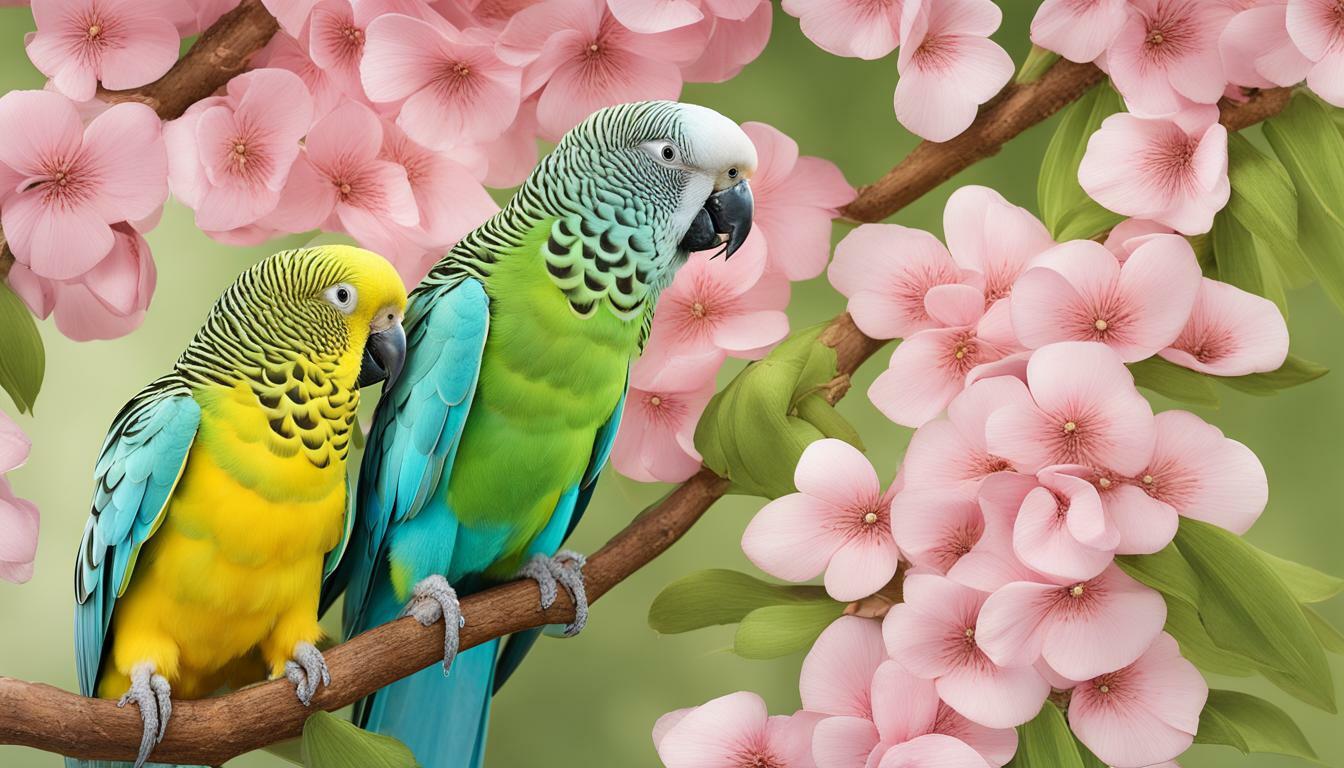As a parakeet owner, you may be wondering whether their bites hurt. While the answer is not as straightforward as a simple “yes” or “no,” we can delve into the topic to provide a better understanding.
The pain level associated with a parakeet bite may vary depending on several factors, including the strength of the bite, the location of the bite, and the individual’s pain tolerance. However, most parakeet bites are not severe enough to cause significant pain.
Key Takeaways:
- Parakeet bites may cause some discomfort, but they are usually not severe enough to cause significant pain.
- The pain level associated with a parakeet bite may vary depending on several factors, such as the strength and location of the bite.
Understanding Parakeet Behavior and Bites
Parakeets are intelligent and curious birds, and as a result, their beaks are one of their primary tools for exploring and interacting with their environment. However, their beaks can also be used as a defense mechanism, and if a parakeet feels threatened or uncomfortable, it may resort to biting as a means of protection.
If you are a parakeet owner, it’s important to understand the reasons why parakeets may bite, as this can help you anticipate and prevent potential biting incidents. Some of the most common reasons for biting include:
- Pain or illness
- Feeling threatened or uncomfortable
- Protecting their territory or mate
- Fear or anxiety
- Protecting their food or toys
If your parakeet does bite you, it’s important to remain calm and avoid reacting in a way that may further agitate the bird. Avoid pulling away quickly, as this may cause the parakeet to tighten its grip and potentially cause more pain. Instead, try to slowly and gently remove your hand from the bird’s beak.
After a biting incident, it’s important to clean and care for any resulting wounds promptly. This can help prevent infection and minimize pain and scarring. If you are unsure about how to properly care for a parakeet bite, it’s important to consult with a veterinarian for advice.
Dealing with Parakeet Bites
Although preventing parakeet bites is an ideal scenario, accidents happen. If you do get bitten by a parakeet, it’s crucial to act fast to minimize the damage and prevent further complications.
The first step is to immediately clean the wound with soap and warm water. If the wound is bleeding heavily, apply pressure with a clean cloth to stop the bleeding. Once the bleeding stops, gently clean the bite area with an antiseptic solution.
It’s essential to monitor the wound closely and watch for any signs of infection, such as redness, swelling, or discharge. If you notice any of these symptoms, seek medical attention immediately as infections can spread quickly.
If the wound is not severe, you can apply an over-the-counter antiseptic ointment or cream to the area to help it heal. Keep the wound clean and dry, avoiding any activities that might irritate the area.
Remember to give your parakeet space and time to calm down after a biting incident. Try to identify the cause of the bite and take steps to avoid the situation in the future. With patience and understanding, you can build trust and prevent future bites.
Preventing Parakeet Bites
If you want to avoid getting bitten by your parakeet, the best approach is to prevent it from happening in the first place. Here are some tips to help you create a safe and respectful environment for your bird:
- Understand their body language: Parakeets will often give warning signs before biting, such as flapping their wings or hissing. Learn to recognize these behaviors and adjust your interactions accordingly.
- Provide a safe environment: Ensure that your parakeet’s cage is secure and free from any hazards that could make them feel threatened or stressed.
- Build trust: Spend time with your parakeet every day, offering them treats, toys, and affection to help them develop trust and a positive association with you.
Keep in mind that even with the best prevention techniques, there may still be occasions where your parakeet bites. It’s important to remain calm and follow the steps outlined in the “Dealing with Parakeet Bites” section to minimize any harm.
Parakeet Bite Care and Healing Wounds
It’s important to take care of parakeet bites as soon as possible to prevent infection and promote healing. Here are some steps to follow:
- Clean the wound: Wash the bite with soap and warm water for at least 5 minutes. This will help remove any bacteria from the wound.
- Apply an antiseptic: Use a topical antiseptic like hydrogen peroxide or rubbing alcohol to disinfect the wound. Be sure to follow the instructions carefully to avoid further damage to the skin.
- Dress the wound: If the bite is bleeding, apply a sterile bandage or dressing to the wound to stop the bleeding.
- Monitor for signs of infection: Keep an eye on the wound for any signs of redness, swelling, or discharge. If you notice any of these symptoms, see a doctor immediately.
- Keep the wound clean: Change the bandage regularly and keep the wound dry and clean. This will help prevent infection and promote faster healing.
If the bite is severe or doesn’t start healing within a few days, see a doctor for further treatment. They may prescribe antibiotics or recommend other treatments to help the wound heal.
Remember, the best way to take care of parakeet bites is to prevent them from happening in the first place. Be careful when handling your parakeet and take steps to build trust and create a safe environment for your pet. By following these tips, you can minimize the risk of getting bitten and promote a happy, healthy relationship with your parakeet.
Conclusion
So, do parakeet bites hurt? Yes, they can be painful, but the level of pain varies depending on the severity of the bite.
Now that you understand parakeet behavior, you can take steps to minimize the risk of getting bitten by creating a safe environment, understanding their body language, and building trust.
If you do get bitten, it’s essential to act quickly by cleaning the wound and monitoring it to prevent infection. You can use suitable ointments to promote healing and reduce the risk of scarring.
Remember, maintaining a respectful relationship with your parakeet is crucial to preventing bites and ensuring a happy and healthy pet. So, keep these tips in mind, and you’ll have a great time bonding with your feathered friend!
Do Parakeets Pee Frequently?
Parakeet urine habits can vary depending on their diet, hydration levels, and overall health. While it is normal for parakeets to pee relatively frequently, excessive or frequent urination might indicate an underlying issue. Monitoring your parakeet’s urine habits, such as its color and consistency, can help in identifying potential health concerns. Regular veterinary check-ups are crucial to ensure your feathered friend’s well-being and address any abnormal parakeet urine habits promptly.
FAQ
Q: Do parakeet bites hurt?
A: Parakeet bites can cause some discomfort, but the level of pain varies depending on the individual and the severity of the bite. It is important to handle parakeets carefully to minimize the risk of getting bitten.
Q: Why do parakeets bite?
A: Parakeets may bite for various reasons, such as feeling threatened, protecting their territory, or if they are in pain or distress. Understanding their behavior and body language can help prevent bites.
Q: How should I handle a parakeet bite?
A: If you do get bitten by a parakeet, remain calm and avoid pulling away abruptly as this may cause further injury. Instead, gently remove your hand from their beak and try to identify the reason for the bite to prevent future incidents.
Q: What should I do if I get bitten by a parakeet?
A: If you are bitten by a parakeet, wash the affected area with mild soap and warm water. Apply an antiseptic ointment and cover the wound with a clean bandage. If the bite is deep or shows signs of infection, seek medical attention.
Q: How can I prevent parakeet bites?
A: To prevent parakeet bites, it is important to understand their body language and respect their boundaries. Avoid sudden movements, provide them with sufficient mental and physical stimulation, and create a safe environment with appropriate perches and toys.
Q: How do I care for a parakeet bite?
A: When caring for a parakeet bite, clean the wound gently with mild soap and warm water. Apply an antibiotic ointment and cover it with a clean bandage. Monitor the wound for any signs of infection, such as redness, swelling, or discharge.
Q: Do parakeet bites always cause infections?
A: Parakeet bites have the potential to cause infections if not properly cared for. It is important to clean the wound thoroughly and monitor for any signs of infection. If you notice any concerning symptoms, seek medical attention.











